Issue 61 : 9 August 2020
Talofa Lava, Kia Orana, Malo E Leilei, Tena Koutou, Hello ...
... and welcome to the latest issue of “For The Love Of The Game”, the official e-zine of the New Zealand Amateur Sport Association Inc. We hope you enjoy reading the articles below.
If you have any feedback on this issue, ideas for future articles, or would like to contact the Editor, please click here. And, you are invited to forward the e-zine to others you know, who may be interested in reading it. An archive of earlier editions of the e-zine can be found here.
If you are interested in applying for membership of the Association, please click here.
From The CEO’s Desk ...
Through the angst and worry that is a global-pandemic, it is somewhat ironic that community sports clubs now have no better opportunity to engage their local communities and make the local Bowling Club, Football Club or Table Tennis auditorium, a great place to connect.
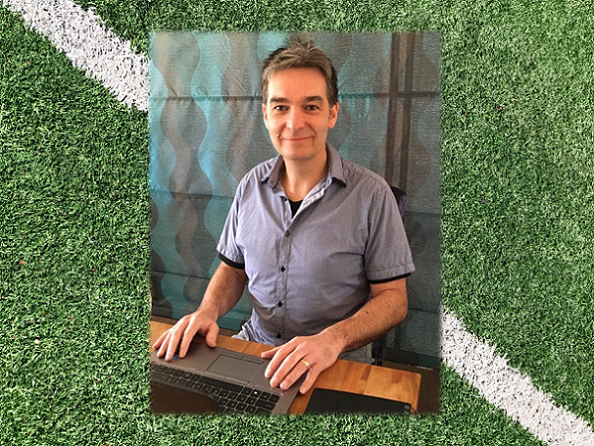
This is for several reasons – yes, there are the cafes and restaurants and playgrounds with the kids, but there is something about connecting through sport that creates a win-win for our society. Firstly, being physically active is obviously good for your health, for your body and your mind. Secondly, while we are doing that, or at least watching our children or friends doing that, we’re able to socially connect with others - again good for the mind and soul.
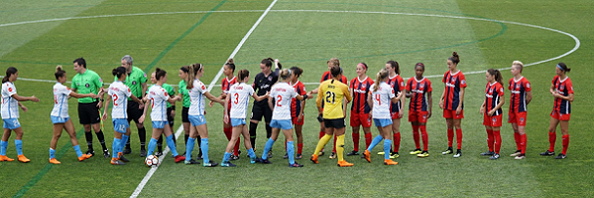
Sport brings people together from every walk of life, so it's a great conversation-starter and it doesn't discriminate - race, colour, creed, employment status - these things are largely foreign to sport and they allow society as a whole to come together equally and inclusively. Local community events in the Wellington region that I live, including "Love Wainuiomata" and the "Love Local Porirua Expo" are great examples of connecting communities and coming together at a time when it is important to positively and socially interact. Local community sports clubs have the opportunity to do the same.
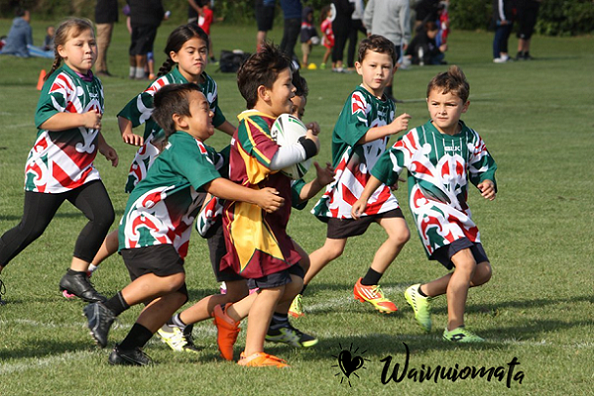
To shift their thinking and embrace the wider communities that they exist in, to provide a place where people can not only be physically active but also create a welcoming and stimulating environment for all New Zealanders to be a part of. I have no doubt, embracing the "local" approach will pay dividends down the track - and re-strengthen the social capital of sport - particularly as we wind-through the roller-coaster that is COVID-19.
Auckland University Rugby Celebrates “The Love Of The Game” ...
The annual Sir Colin Maiden Shield match between Auckland University RFC’s two Under 85 kg teams, has become one of Auckland’s notable rugby fixtures. In the current era where generally “size matters” on the rugby field, the Under 85 kg grade in Auckland is one for competitively enjoying the sport both on and off the field, "for the love of the game". The annual match is said to be the most fiercely contested intra-club game on the rugby calendar in New Zealand.
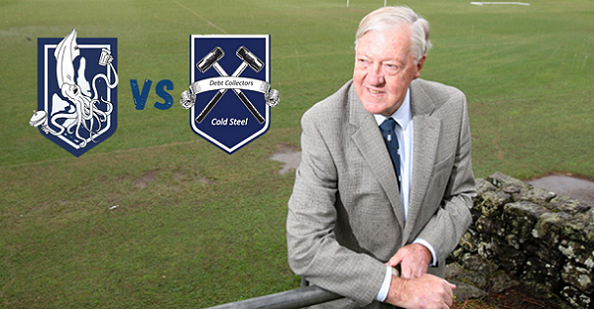
(Sir Colin Maiden was on-hand on Saturday, to present the Shield bearing his name)
Sir Colin Maiden was a former Vice-Chancellor of the University of Auckland and well-respected Company Director. He was the driving force behind the establishment of five rugby fields, two soccer fields, three cricket pitches, two hockey fields, a softball diamond, an athletic track “and a splendid clubhouse” on the sports arena now known as "Colin Maiden Park".
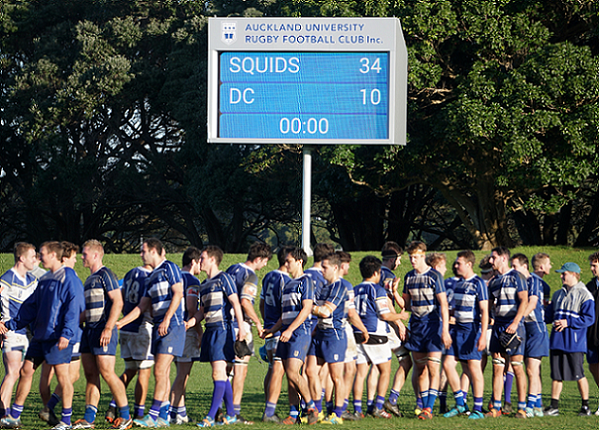
(Camaraderie above all else in the most keenly-contested intra-club match in New Zealand)
In the 2020 match, played yesterday between current Shield-holders the well-seasoned "Squids" against the younger "Debt Collectors", the first 30 minutes was keenly contested, with the score 3-all on the stroke of half-time. A converted try by the Squids before the oranges-break set the tone for the second-half, with the final score 34 points to 10, leaving the Debt-Collectors to rue what "might have been", had their first-half efforts been maintained.
National Sport Club Survey (NSCS) Coming Up ...
The Association and AUT’s Sport Performance Research Institute New Zealand are working in partnership to deliver the 2020 NSCS. This is the third year of this important national study. The NSCS Project Team comprises co-leads Dr Mel Johnston and Dr Michael Naylor (from AUT) as well as Amber Campbell, Will Caccia-Birch (Association CEO) and Gordon Noble-Campbell (Association Chairman). The project aligns with the spirit of insights-driven provision of sport, which is increasingly a priority across the sector.
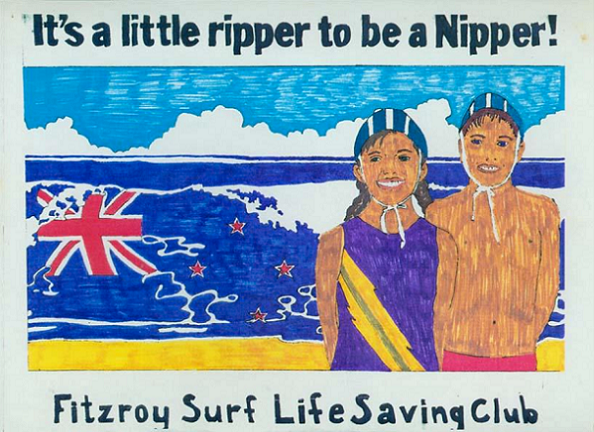
(All clubs, from all codes, are invited to participate in the 2020 NSCS)
The Club itself as an organisational entity is the unit of analysis, (rather than individuals as participants). This survey is also unique because it is undertaken annually, nationally and across sport codes. Importantly, the NSCS builds upon what National Sport Organisations, Regional Sport Organisations, Regional Sports Trusts and Club’s may already be doing in terms of surveys and gathering insights. The Project Team works with sport organisations on the survey itself, engaging with local communities and facilitating workshops. Sport Clubs all around NZ will receive an invitation to participate in the 2020 NSCS on 17 August. In addition to building on a longitudinal set of sport club data, additional foci for the 2020 NSCS are COVID-19 as well "Innovation" and "Resilience" – which have never been more important for sport clubs.
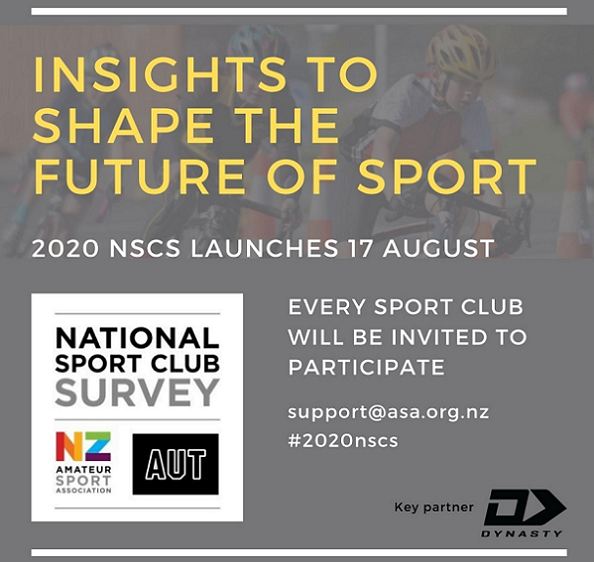
2020 NSCS workshops to discuss the survey findings are being planned for Tauranga, New Plymouth and Hamilton and potentially elsewhere towards the end of the year. Dr. Naylor notes that “the 2020 NSCS will play a role in helping to re-imagine sport in these unprecedented times”. The Association and AUT acknowledge the generous financial support of Dynasty Sport and Pinnacle Corporation. To find out more about the survey, please click here.
Viewpoint : Can Community Sport Survive Without “Pokies” ... ???
News this week that Wellington's City Council is proposing a sinking-lid policy for Class 4 Gaming Machines has prompted praise and alarm in equal measure. Both the Problem Gambling Foundation and Salvation Army report that pokies have a disproportionate effect on more deprived areas of the city, with the negative influences of gambling found to affect Māori, Pacific and Asian communities at least twice as much as Pākehā. However, the Gaming Machine Association has also noted that 7,200 grants totalling $60 million were distributed in 2017/2018, with sport being the principal beneficiary.
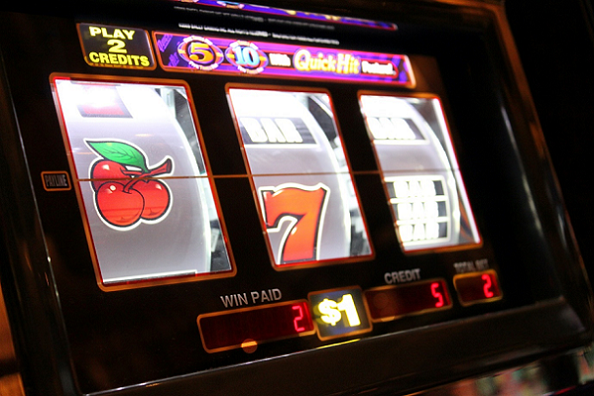
(7,200 grants totalling $60 million were distributed in 2017/2018)
Sport New Zealand observes that Class 4 Gambling is the biggest contributor to community sport nationally and that over the past 25 years, community sport clubs and organisations have become increasingly reliant on this source of funding.
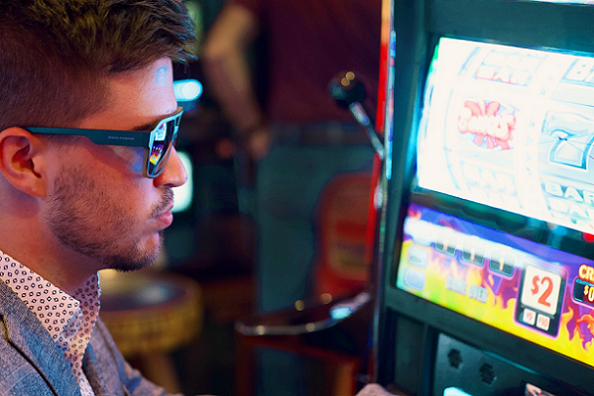
(Amateur sport is expensive to run, but club members are not always willing to contribute)
The reality is that funds derived from gambling (in one form or another) have funded community sport for many decades. 10 years ago, research by Victoria University of Wellington recommended that sports “clubs need alternative income streams due to [their] current relatively high levels of dependence on grant funding and [their] levels of debt.” Among other findings, VUW’s research found that:
- grants are the major income source for rugby, netball and cricket;
- successful clubs are developing alternative sources of income, including hiring out of premises, developing annuity funds, running off-season competitions and establishing correlated business;
- sponsorship is a valuable source of income, but clubs need to have a clear knowledge of the benefits the club can bring to a sponsor;
- amateur sport is expensive to run: requiring good quality playing surfaces, coaching, equipment, well maintained premises, and administration, to ensure that players’ experiences are positive;
- members, however, do not always appreciate the high costs of maintaining their sports facilities and may be unwilling to contribute to these costs;
- generally, smaller sports clubs have higher ratios of total liabilities to total assets;
- more than 40% of sports clubs have non-current (or long-term) debt;
- a small number of clubs are technically insolvent, with debts higher than total assets.
You can read the full report, here. The 2020 NSCS will provide further insight as to the current financial state of New Zealand’s sports clubs.
The Importance Of Amateur And Youth Sports ...
In a recent article, Dr. Cheri Bradish (from Ryerson University in Canada) and Norm O’Reilly (one of Canada’s leading sports scholars), have noted that “in these challenging times, the economic, social and psychological benefits of amateur sport may be more vital and necessary than ever.” As this Association has publicly stated on many occasions, community sport organisations provide much more than simply an opportunity for people to participate in sport.
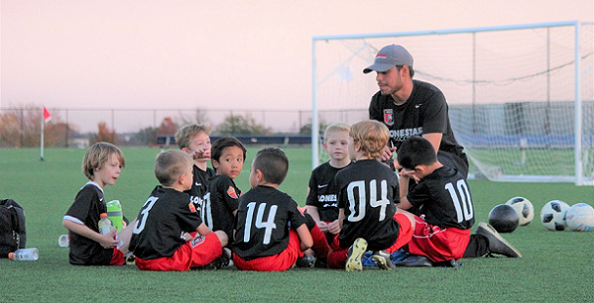
Bradish and O’Reilly observe that “participation in sport leads to long-term character development and benefits physical and mental health”, with sport offering “one of society’s great means of early social engagement, providing citizens across demographic lines opportunities for sustained and equitable participation.” You can read more about how Canada is responding to the challenges facing amateur sport, by clicking here.
Amateur Sport Clubs Fear For Future ...
In England, the economic and social impact of the shut-down of community sport is placing many local clubs in jeopardy. It's reported that in the London borough of Waltham Forest, local clubs are suffering from financial losses as a result.
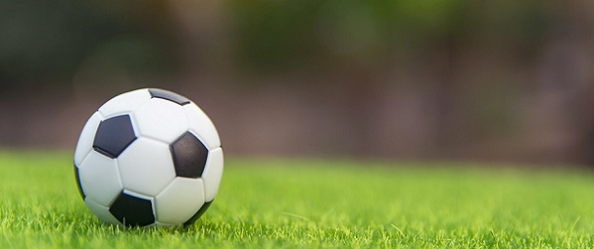
As one local newspaper has noted. “Grassroots sport is an industry which generates a lot of money in the local economy through sponsorships, buying kits and equipment, hiring and leasing pitches and sports halls, membership payments to leagues and associations, plus fees paid to referees. They rely heavily on the time and commitment of all their members, who are mostly unpaid volunteers. Most importantly, amateur sports clubs give our community – especially young people – a source of enjoyment and physical exercise which can lead to long-term friendships, sporting dreams being fulfilled, and providing inspiration for the next generation. It would be a tragedy to lose this part of our community.” You can read more here.
Omanu Bowling Club In Liquidation ...
Less than two years ago, Omanu Bowling Club in Tauranga celebrated its 50th Jubilee. On that occasion, the Jubilee Tournament had to be cancelled due to bad weather. While not a portent of its shock liquidation announced last month, no-one at that time would have considered the club's future was in doubt.
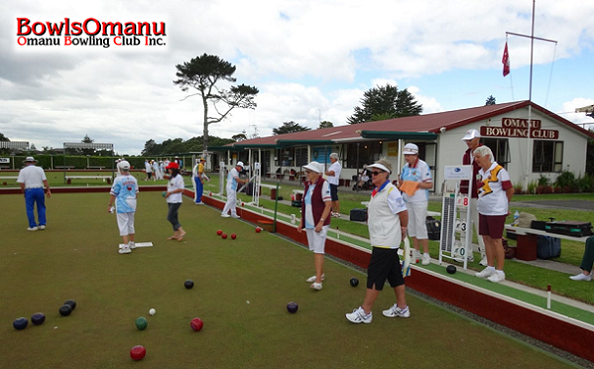
At the time of the Jubilee, the future looked promising. A history of the Club was written, providing an insight into the Club's founders and their goal in building a community resource for future generations. As was noted at the time, the Club had “survived the fifty years through hard work and teams of dedicated members.”
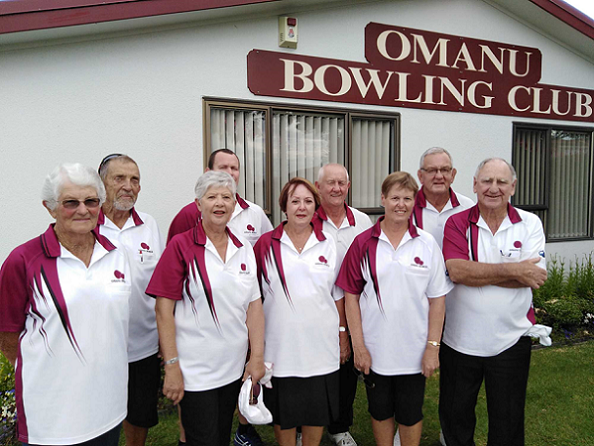
(Pat Andrews, third from right, says there were many factors behind the club's closure)
Current Club Secretary, Pat Andrews observes that there were several factors which forced the final decision to close in May. She notes that the membership had over the past 10 years had been declining, with only just over 40 active players left. The average age of the bowlers was nearer 80 than 70, campaigns to attract new players were unsuccessful, and as all Office-Holders were voluntary, those who had been doing the work for years felt they had to retire. Despite best efforts. no one would step forward to assist. In summary, the Club still had funds in the bank to carry on, but not the personnel. You can read more, here.
From The Archives ...
FOOTBALL
OTAGO DAILY TIMES, ISSUE 18261, 2 JUNE 1921
“The sailor men from HMS Chatham have come and gone, and we are pleased to have had them with us in three games under the jurisdiction of the OFA. Their defeat at the hands of the two Otago teams was really attributable to the fact that they mostly have “green seas” and not “green grass” underneath them. Practice ashore would make them a tough proposition.”
“At Seacliff they were lucky to win, as two of their goals were really “gifts.” However, the short ground was not suitable for the sturdy boots of the naval men, and it was not till the second spell was well advanced that they got its measure.”
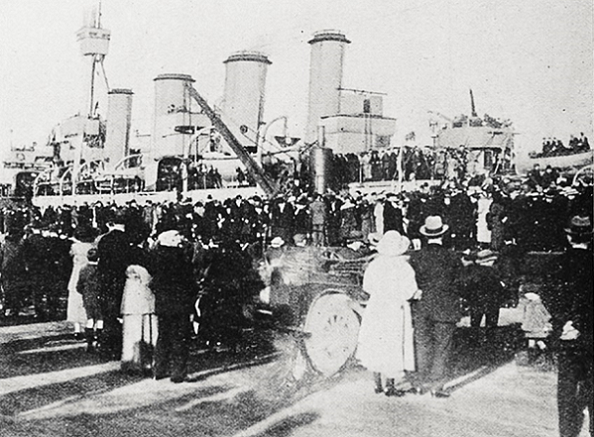
(The 1921 visit of the HMS Chatham to Dunedin, saw three football games against local clubs)
“Seacliff, as they tell you up there, are a team of veterans, but one wonders at their speed and agility if they are as “aged” as they would have one believe. Several are over two-score years, but there are several senior teams in the city who would be indeed fortunate to get home against them. Amongst their ranks they have George Armit brother of the famous rugby player of that name. George is a tower of safety to them as a full-back and has the enviable distinction of having represented Otago in both soccer and rugby.”
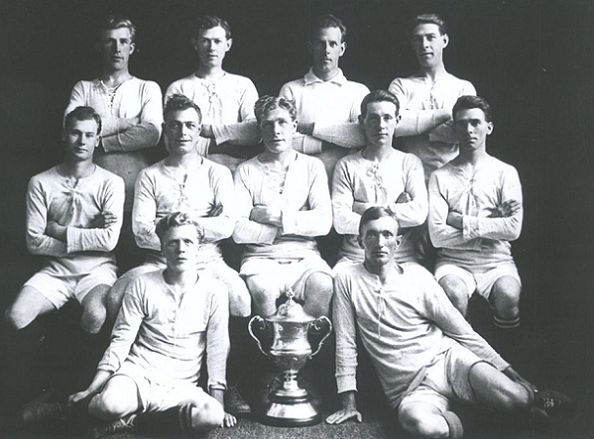
(The Seacliff Football Club team, which won the Chatham Cup in 1923)
George Millar Armit was a member of an Otago family closely identified with sport. Born in 1880 at Kaikorai, he attended Kaikorai School, and later was associated with several sporting organisations in the region. Ha was a member of the Kaikorai senior rugby team and represented Otago in 1908 against Canterbury. George was also a keen follower of cricket and played for the Roslyn-Wakari team in the second-grade competition, being a member of the side when it won the Shield in 1906. He played second-grade soccer for the Roslyn-Wakari team and represented the Otago province in 1903 against Southland.
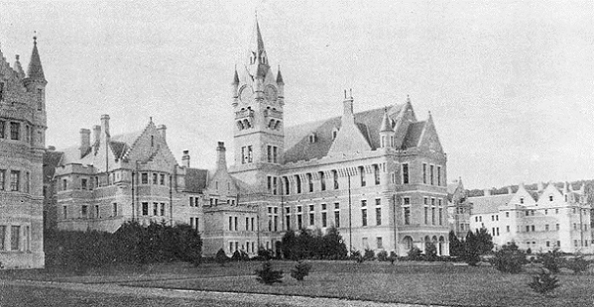
(The Club based at the Seacliff Mental Hospital, won the first Chatham Cup Final in 1923)
After he was appointed to the position of Charge Attendant at the Seacliff Mental Hospital, a position he held for 22 years, Armit continued to take an active interest in sport, first playing for Seacliff at soccer and then coaching the side in 1923 when they won the inaugural Chatham Cup. He also coached the Seacliff rugby team that played in the Otago Sub-Union competition. George also belonged to the Kaikorai Bowling Club. He was a brother of the famous “Barney” Armit, who lost his life in tragic circumstances on the football field, (a story for another day).
Postscript : Chatham Cup Cancellations ...
2020 is only the sixth time in its 98-year history that competition for the Chatham Cup has been cancelled. In 1937, the competition was cancelled owing to the Final being scheduled to be played in the South Island (at a forecast loss owing to the visit of the touring Springboks), while during World War Two, the competition was not played from 1941 to 1944.
The Final Word ...
“Amateur sport is really all about parents and volunteers, keeping organisations going.”
(John Horgan, Premier, British Columbia, Canada)